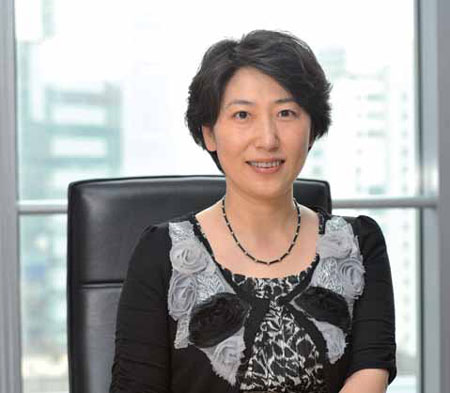Talent crunch
Updated: 2012-08-31 08:44
By Lu Chang and Li Aoxue (China Daily)
|
||||||||
Cherol Cheuk, general manager of Hudson Shanghai, an international recruitment company, says with rising domestic consumption, not only will the demand for goods and services go up, but also the demand for skilled people in service sectors.
"If you look at the healthcare industry, it is the only industry that has not been affected by the global economic turmoil," she says. "Since most Chinese people are moving up to the middle class level, they are also now more keen than ever to ensure longer life with proper healthcare facilities. So there is a huge demand for such services, especially in medical business and allied sectors like biotechnology and medical equipment."
According to a report by Antal International China, a global executive recruitment organization, China's most talent-demanding sectors are luxury goods, hospitality, leisure, finance, retail and healthcare.
"These industries are all service-oriented, probably because the concept of 'excellent service' is still quite new in China," says Sarah Jones, head of operations at Antal International China. "The talent shortage mainly lies in the mid to senior-level bracket, due to the fact that very few candidates have the required five years' experience needed to fill those positions."
|
Zhou Xing is the assurance partner of PwC China. Provided to China Daily |
Retention problems
A limited supply of talent and the increasing challenge of recruitment are also resulting in high turnover rates.
A report by Hudson shows that across all sectors in China, 52 percent of the employees remained with one employer for two years or less, while 7 percent remained for more than four years.
A similar survey of China's business climate by AmCham-China in 2011 showed that the voluntary turnover rate had risen to 20 percent in 2010, the highest rate in the last decade.
Foreign multinationals increasingly report that their employees are leaving to join State-owned enterprises and private companies rather than the previous common practice of switching from job to job in search of ever-higher paying jobs at foreign companies, the report says. The rise of Chinese global employers will place additional pressures on multinational employers to retain their top talent, it concludes.
China's executives and leaders are now looking at alternative strategies such as internal training and building a larger base of potential managers including those from overseas.
Jones at Antal International China says human resource directors need to rethink their recruitment strategies in China, as "hiring expats for professional and managerial positions does not appear to be a sustainable solution, as they hardly understand local culture and business style".
Zhou Xing, assurance partner of PwC China, says that good company culture, training and promoting recruits are key to keeping a low turnover rate.
"We are doing what we can to help them grow and learn new regulations and rules of accounting as well as other soft skills for career development and give them a clear and attractive career path and a sense of pride of being part of the company," Zhou says. "Most of our mid-to-senior managers are from entry-level positions and have been working in the company for more than 10 years."
She says the turnover of PwC China remains close to 15 percent, an average of the global turnover in the auditing industry, meaning that the staff are quite satisfied with the current working conditions.
PwC China hired about 1,900 graduates in 2012 from more than 18,000 applicants, an increase of 18 percent over the previous year.
"We don't have any problems in hiring raw recruits, and most of them are very intelligent, hardworking and willing to take the initiative," Zhou says.
But some argue that despite the fact that multinational companies train and promote managers from entry-level positions, the process is time-consuming and costly.
"Sometimes companies have a very shortened timeframe within which to develop their staff into senior leaders, and it will take several years for these employees to be future leaders of the organization," says Yeung at CEIBS in Shanghai.
"So I think companies need to accelerate the process, provide select employees with special training and mentoring to put them on a fast track to secure future company management positions."

 Relief reaches isolated village
Relief reaches isolated village
 Rainfall poses new threats to quake-hit region
Rainfall poses new threats to quake-hit region
 Funerals begin for Boston bombing victims
Funerals begin for Boston bombing victims
 Quake takeaway from China's Air Force
Quake takeaway from China's Air Force
 Obama celebrates young inventors at science fair
Obama celebrates young inventors at science fair
 Earth Day marked around the world
Earth Day marked around the world
 Volunteer team helping students find sense of normalcy
Volunteer team helping students find sense of normalcy
 Ethnic groups quick to join rescue efforts
Ethnic groups quick to join rescue efforts
Most Viewed
Editor's Picks

|

|

|

|

|

|
Today's Top News
Chinese fleet drives out Japan's boats from Diaoyu
Health new priority for quake zone
Inspired by Guan, more Chinese pick up golf
Russia criticizes US reports on human rights
China, ROK criticize visits to shrine
Sino-US shared interests emphasized
China 'aims to share its dream with world'
Chinese president appoints 5 new ambassadors
US Weekly

|

|







